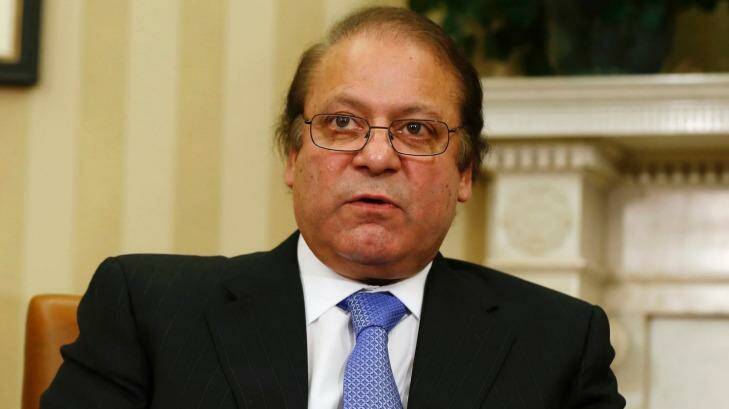As if the Islamic State (IS) and the US-led response to it have not created enough havoc in West Asia. Pakistan's cross-border conflicts with three out of its four neighbours have added an extra dimension to the regional turbulence. In addition to the recent escalation in cross-border firing between Pakistan and India and between Pakistan and Afghanistan, Pakistani-Iranian relations have taken a sharp downturn lately, resulting in serious border skirmishes between them. If the situation is not contained, there is a risk of a wider regional crisis.
Subscribe now for unlimited access.
$0/
(min cost $0)
or signup to continue reading
The border dispute between Pakistan and India – two long-standing and nuclear-armed foes – is not something new. It has dogged their relations ever since the creation of Pakistan out of the Indian Subcontinent in 1947. The two countries have fought wars in 1948, 1965 and 1971. While Pakistan was overwhelmed in all of them, the last one resulted in the country's dismemberment with the creation of the independent state of Bangladesh. In the absence of a peaceful settlement of the dispute over the Indian-controlled Jammu and Kashmir, hostilities have fluctuated between the two sides. In 1991, they fought another potentially devastating mini-war, which brought them close to a nuclear clash, only avoided under intense US-led international pressure. In the last few months, border skirmishes have become more intense and regular, with fatalities for both sides. Indian Prime Minister Nandra Modi, whose Hindu-dominated Bharatiya Janata Party (BJP) swept to power in June, has repeatedly warned Pakistan that he will not tolerate the ongoing conflict. His Pakistani counterpart, Prime Minister Nawaz Sharif, whose Muslim League (N) party won the 2013 election but who since then has been beset by growing internal strife and opposition for alleged electoral fraud, has responded in kind. While both parties consider it in their interest to avoid another war, the latest flare-up has the potential for the conflict to widen, with a serious impact on Pakistan-Afghanistan ties and regional stability.

Afghan-Pakistan relations have traditionally been undermined by a border dispute and Islamabad's support of the Taliban-led insurgents in Afghanistan, for regional ambitions and rivalry with India. Despite all attempts by the United States as the leading military power in Afghanistan since October 2001 to prompt Pakistan to back away from its support of the Afghan insurgents and join forces with the US and Afghanistan to bring stability to Afghanistan, and to secure the very porous border between the two neighbours, not much has been achieved. The Taliban and its affiliates have continued to operate out of their safe sanctuaries from the Pakistani side of the border, with considerable help from Pakistan's powerful military and military intelligence (ISI). The result has been regular mortar and rocket exchanges across the border and Pakistan's military incursions into Afghan territory. The recent digging of a 480-kilometre trench by the Pakistani military along the border with Afghanistan has diluted relations further. Meanwhile, Afghanistan's traditional friendship and signing of the 2011 Strategic Partnership with India, involving Indian military assistance to Afghanistan, have further complicated Kabul-Islamabad ties, causing mutual incrimination and border clashes.
Beyond this and, more alarmingly, the predominantly Shiite Islamic Republic of Iran and largely Sunni Islamic Republic of Pakistan have increasingly locked horns over a number of issues. Tehran has shunned Pakistan's support of the extremist Sunni Taliban and their affiliates in Afghanistan, where Iran has secured a strong leverage of its own in strategic competition with Pakistan. It has also accused Pakistan of backing separatist groups in south-eastern Iran. The group that has concerned Tehran most is Jundallah (Soldiers of God) – a militant Sunni organisation, based in Iranian Baluchistan on the border with Pakistan, claiming to fight for the rights of the minority Sunni population of Iran. This group's activities have resulted in bloody clashes with the Iranian security forces and Iranian hot pursuit of the group's fighters across into Pakistan, and therefore recent cross-border fighting between the two countries. Both sides have warned one another of a wider conflict. Given the deepening of strategic ties between Pakistan and Saudi Arabia, and long-standing Iranian-Saudi rivalry and US-Iranian enmity, Tehran has viewed Jundallah's activities as part of an anti-Iranian, Pakistani-Saudi-American strategy, despite Islamabad's repeated denial.
Whatever the outcome of Pakistan's conflicts with three of its neighbours and Pakistan's domestic fragility, the regional atmosphere is impregnated with more dangerous developments than the ones generated by the IS phenomenon. Any deterioration of Pakistan's relations with these neighbours could spawn greater problems than what the current anti-IS, US-led military campaign can handle in the region.
It is time for West and South Asian states, more specifically Pakistan, India, Afghanistan and Iran, to convene a regional conference whereby they could reach a regional consensus on solving their cross-border problems and de-escalate their rivalries in pursuit of conflicting interests. With most foreign troops withdrawing from Afghanistan and uncertainty facing the country's future, there has never been a better time for such a conference. The region cannot afford to have more volatility than what is currently experiencing, and the more efforts are put in peacemaking the more the chances of bringing stability to a highly turbulent region.
Amin Saikal is Professor of Political Science and Director of the Centre for Arab and Islamic Studies (the Middle East and Central Asia) at the Australian National University, and author of Zone of Crisis: Afghanistan, Pakistan, Iran and Iraq (2014)

